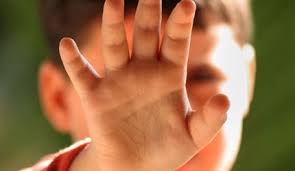 “There are generally three parties to child abuse: the abused, the abuser and the bystander.” – Louise Penny, A Fatal Grace
“There are generally three parties to child abuse: the abused, the abuser and the bystander.” – Louise Penny, A Fatal Grace
According to the website HelpGuide.Org, “Child abuse is more than bruises or broken bones. While physical abuse is shocking due to the scars it leaves, not all child abuse is as obvious. Ignoring children’s needs, putting them in unsupervised, dangerous situations, or making a child feel worthless or stupid are also child abuse. Regardless of the type of child abuse, the result is serious emotional harm.”
The Division of Child Protection and Permanency (DCPP), formerly known as the Division of Youth and Family Services (DYFS), was created to investigate and if necessary prosecute, allegations of child abuse and neglect in New Jersey. The DCPP is responsible for investigating any reports of physical abuse according to eyewitness accounts, reports from parents, family members, teachers or physicians of suspicious injuries, or claims from the abused children themselves. The DCPP also investigates allegations of unsafe living situations arising out of substance abuse by one or both parents. Also in New Jersey, a parent could be charged with child endangerment if the child is left at home alone for extended periods of time.
When the agency was called DYFS, it was plagued by a series of shocking revelations involving abuse and neglect of children. Ultimately, New Jersey agreed to federal court supervision because of a class action lawsuit settlement, to make sure New Jersey’s child protection system was completely revamped. DYFS was abolished and replaced by the DCPP.
After a report of potential child abuse or neglect is filed, the DCPP sends a caseworker to the child’s home to investigate and assess the situation. After the initial visit, the caseworker will contact people in the child’s life who may have relevant information. Once the caseworker thoroughly investigates the report of abuse, the parent or parents will receive a letter within 45 days outlining the findings of the investigation. If it’s found that the child is safe, the report will be concluded as “unfounded” and the process will be over. If there is evidence that the child was harmed or placed at substantial risk of harm by a caregiver, the report will come back as “substantiated” and further action will be taken, including the possibility of formal court hearings to remove the child from the home.
If the DCPP takes the caregiver to court on allegations of the child abuse or neglect, while the case is proceeding, the agency may conclude on its own – without a judge – that the caregiver had abused or neglected the child. If this decision is made, it must inform the accused, provide the information to police and place that person’s name in the New Jersey Child Abuse Registry. If the caregiver disagrees with the DCPP decision, he/she has 20 days to appeal and request a hearing.
The DCPP is necessary, but it’s controversial, because its actions raise issues of due process and overall fairness. At the conclusion of an investigation, the agency makes a decision based on a legal standard that a preponderance (great weight than not) of evidence that a child is abused, neglected, or placed at risk of harm. Even if a report is unfounded, the DCPP keeps the file for 3 years and only if there are no further issues is the file expunged.
Even worse, if a report is “not established,” the allegations, the investigation information and “findings” remain in the DCPP’s local regional office files forever, without the right to know the evidence, to challenge the allegations and without the right to expunge the files! Nasty divorces or child custody fights can produce false claims of child abuse – in those cases, the real victim is the falsely accused parent. The identities of the person or persons making the allegations or accusations remain unknown, without the possibility of them being punished for their wrongdoings.
The prospect of losing a child is frightening and facing the DCPP is intimidating, especially with the dire consequences when an accusation isn’t true, or an incident of discipline is taken out of context or distorted. If a charge is true, then cooperation in the process is essential. But anyone contacted by this agency with a charge of child abuse or neglect should at least consult with a lawyer with a solid command of DCPP law, who knows what it takes to force a balance of the interests of all sides. Kieu-Nhi Le, Rutgers School of Law Newark candidate for a JD degree in May 2016. She is the Managing Business Editor of the Rutgers Computer and Technology Law Journal collaborated with me on this blog.

